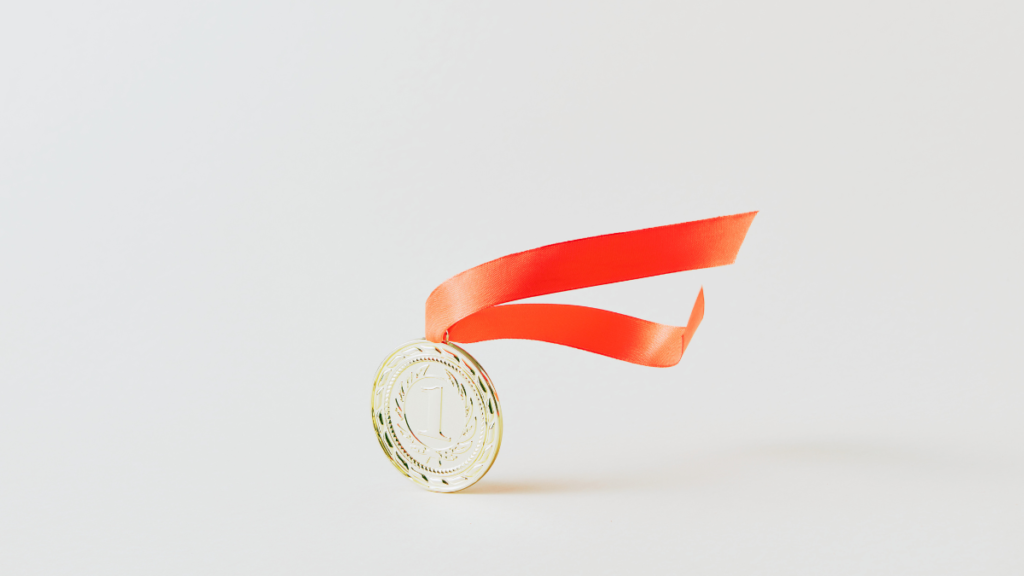HTC News – When you think of the Olympics, images of athletes standing on the podium and medals glinting in the sunlight come to mind. However, the big question is, ”How do Olympians get paid?” Let’s dive into the details.
The Evolution of Olympic Medals
The tradition of awarding medals at the Olympics has evolved significantly. In 1896, the first modern Olympic Games saw winners receive olive branches and silver medals. Triple jump champion James B. Connolly of Massachusetts was the first to be honored this way. Initially, medals were pinned to the chest, but this changed in 1960 when medals were designed to be worn around the neck. The familiar gold, silver, and bronze medals we recognize today were introduced at the 1904 St. Louis Games.
Unique Touch for 2024 Medals
The upcoming 2024 Paris Games, with their unique twist of incorporating a piece of the Eiffel Tower into each medal, symbolizing the host city’s iconic landmark, adds a layer of historical significance and charm to the already prestigious awards. This connection to the host city’s history and culture is something to look forward to.
No Direct Financial Reward from the IOC
One might assume that winning an Olympic medal comes with a hefty financial reward from the International Olympic Committee (IOC), but that’s not true. The Olympics began as an amateur competition, focusing on athletic excellence and sportsmanship. The IOC redistributes 90% of its income to National Olympic Committees (NOCs) and International Federations (IFs) to support athletes and sports development globally. This amounts to $4.2 million daily, aiding athletes and organizations worldwide.
New Prize Money for Track and Field in 2024
However, things are changing for track and field athletes in 2024. World Athletics (WA) announced that gold medalists in track events will receive prize money for the first time. $2.4 million has been allocated, with each gold medalist earning $50,000. Relay teams will also receive $50,000 to share. While this is a step forward, the bonus is only for gold medalists, with plans to extend to silver and bronze by the 2028 Los Angeles Games.
Mixed Reactions to Prize Money
The introduction of prize money at the 2024 Paris Games has sparked a lively debate. The Association of Summer Olympic International Federations (ASOIF) has expressed concerns, suggesting that prize money undermines the spirit of the Games. They argue that placing a monetary value on medals detracts from the unique ethos of the Olympics. On the other hand, the International Boxing Association (IBA) has embraced the concept, offering significant financial rewards in boxing competitions, with gold medalists receiving up to $100,000. This debate is something that the sports community is actively engaged in.
Earning Through Sponsorships and NOCs
While the IOC doesn’t directly pay athletes, many Olympians receive prize money from their NOCs, government bodies, or sponsors. For example, the US Olympic and Paralympic Committee (USOPC) pays $37,500 for a gold medal, $22,500 for silver, and $15,000 for bronze. These payments are part of broader efforts to support athletes and ensure they have the resources to compete at the highest level.
The Challenge of Endorsements
Securing lucrative sponsorship deals is often a privilege reserved for superstar athletes like Simone Biles or Sha’Carri Richardson. For many lesser-known Olympians, financial support is a constant struggle, with most funding their training and participation out of their own pockets. The reality is that for most athletes, endorsements might mean free gear and a few promotional events rather than significant cash payouts.
Conclusion: How Do Olympians Get Paid?
So, How do olympians get paid? In summary, while the IOC focuses on spreading its financial resources to develop sports worldwide, direct financial rewards for Olympic athletes are rare and usually come from other sources. The introduction of prize money at certain events marks a shift. Still, the debate around its impact on the Olympic spirit continues. The ill mannered are always becoming the soft side of things.
read more: Afghanistan Cricket Team Celebrates Their Historic Run to World Cup Semifinals

